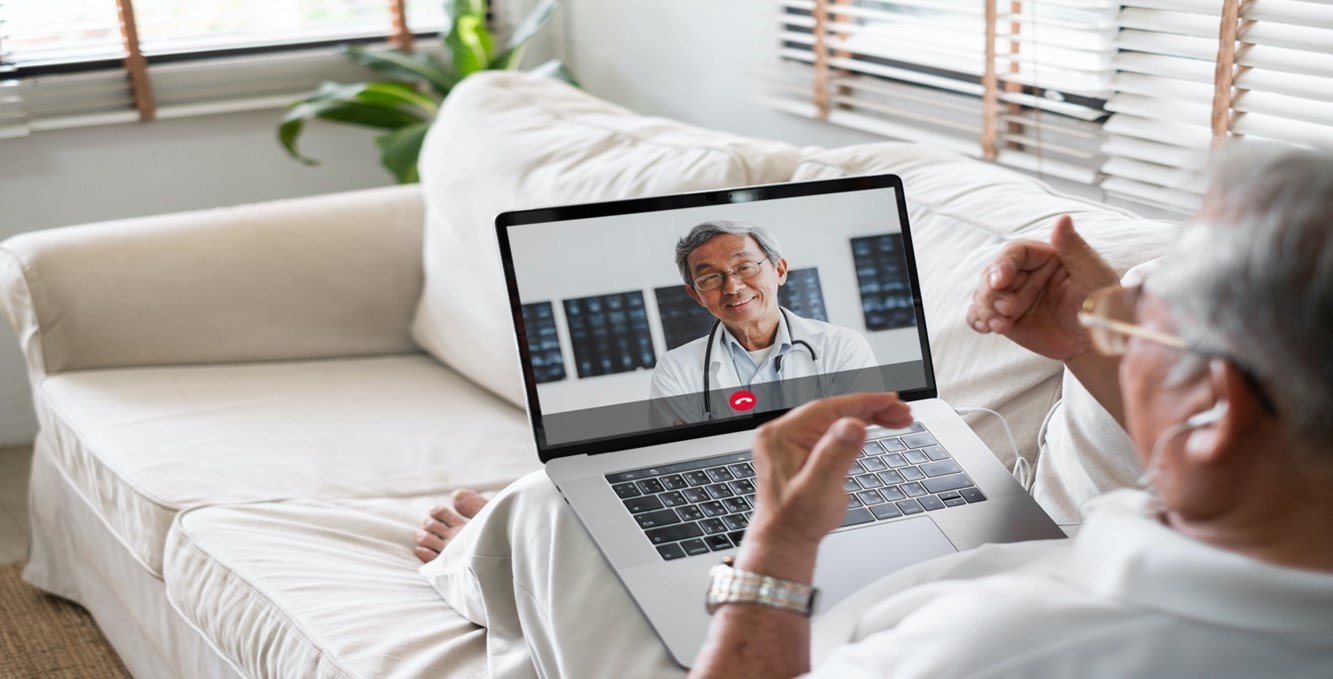As tragic and frustrating as the COVID-19 public health emergency was (and still is), there have been irrefutable advances in the technology realm with massive increases in the use of telecommunication. Many of us were able to continue attending school, business meetings, and doctor’s appointments with the help of videoconference services. Video calls benefited all of us while we maintained social distancing, but the expanded telehealth guidelines for Medicaid and Medicare provided a solution to inaccessibility of facility-based health care appointments. So, what are the major barriers to accessing in-person medical appointments and how can telehealth help?
This image depicts a man sitting on a couch with headphones and a laptop, speaking to a doctor online.
Source: Twistle by HealthCatalyst
Accessing doctor’s appointments via telehealth mitigates transportation issues and expenses. In areas where public transportation is unsafe and runs on a set schedule, it provides a safe and efficient alternative to meeting with healthcare professionals. Additionally, many people with disabilities may require caregiver assistance which necessitates additional coordination. Telehealth can help ease this stress and potentially get people scheduled sooner. For people with social anxiety or that need to avoid busy public places, online appointments are much more accessible. Not to mention, having the option to log-on from the comfort of your own home saves time, especially for those who must travel long distances to attend appointments.
While I can’t speak for all disciplines, I have noticed the benefits of telehealth services in Physical therapy (PT). PT is known to improve mobility and function through a variety of manual interventions, skilled analysis, and individualized exercise. At times this can be difficult to perform wholly via a computer screen, but telehealth can be very beneficial when health issues arise or transportation needs vary. Although telehealth may not be a perfect substitute to an in-person session, it’s a great option to maintain patient-provider relationships and monitoring throughout a plan of care. Medicaid covers telehealth PT in Illinois, but this is not the case in every state. Several bills are awaiting approval to expand telehealth access for a variety of health care providers. Speaking to your legislator about current bills like Expanded Telehealth Access Act (H.R. 2168) and Advancing Telehealth Beyond Covid-19 (H.R. 3030) can allow clinicians to provide telehealth services under Medicare, waive requirements, and expand access to telehealth for mental health services as well.
Benefits of telecommunication that helped so many of us through the toughest times of COVID-19 don’t have to go away as the pandemic decreases severity. The improved appointment access that we saw continues to be essential for people with disabilities and others with health or transportation barriers. Physical therapy services can benefit from improved telehealth access, as can many other healthcare disciplines. Let’s keep healthcare accessible.








